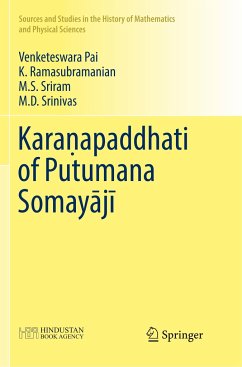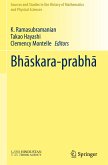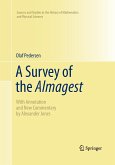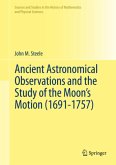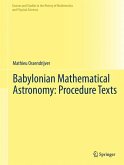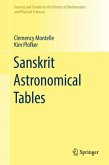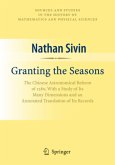This book is an important text of the Kerala school of astronomy and mathematics, probably composed in the 16th century. In the Indian astronomical tradition, the karana texts are essentially computational manuals, and they often display a high level of ingenuity in coming up with simplified algorithms for computing planetary longitudes and other related quantities. Karanapaddhati, however, is not a karana text. Rather, it discusses the paddhati or the rationale for arriving at suitable algorithms that are needed while preparing a karana text for a given epoch. Thus the work is addressed not to the almanac maker but to the manual maker.
Karanapaddhati presents the theoretical basis for the vakya system, where the true longitudes of the planet are calculated directly by making use of certain auxiliary notions such as the khanda, mandala and dhruva along with tabulated values of changes in the true longitude over certain regular intervals which are expressed in the form of vakyas or mnemonic phrases. The text also discusses the method of vallyupasa hara, which is essentially a technique of continued fraction expansion for obtaining optimal approximations to the rates of motion of planets and their anomalies, involving ratios of smaller numbers. It also presents a new fast convergent series for pi which is not mentioned in the earlier works of the Kerala school. As this is a unique text presenting the rationale behind the vakya system and the computational procedures used in the karana texts, it would serve as a useful companion for all those interested in the history of astronomy. The authors have provided a translation of the text followed by detailed notes which explain all the computational procedures, along with their rationale, by means of diagrams and equations.
Karanapaddhati presents the theoretical basis for the vakya system, where the true longitudes of the planet are calculated directly by making use of certain auxiliary notions such as the khanda, mandala and dhruva along with tabulated values of changes in the true longitude over certain regular intervals which are expressed in the form of vakyas or mnemonic phrases. The text also discusses the method of vallyupasa hara, which is essentially a technique of continued fraction expansion for obtaining optimal approximations to the rates of motion of planets and their anomalies, involving ratios of smaller numbers. It also presents a new fast convergent series for pi which is not mentioned in the earlier works of the Kerala school. As this is a unique text presenting the rationale behind the vakya system and the computational procedures used in the karana texts, it would serve as a useful companion for all those interested in the history of astronomy. The authors have provided a translation of the text followed by detailed notes which explain all the computational procedures, along with their rationale, by means of diagrams and equations.
"The publication of Karanapaddhati is a significant event for our understanding of the History and Mathematics and Astronomy. ... it opens a new phase of analysis that gives us the hope of a better understanding of the evolution of astronomy in India as driven by a keen sense of reality ... and the subject who deals with both." (Satyanad Kichenassamy, Indian Journal of History of Science, Vol. 56, 2021)
"This useful work contains an English translation of the Karanapaddhati of Putumana Somayaji along with extensive explanatory notes. ... In sum, this solid piece of work, invaluable for those studying medieval Indian astronomy and mathematics, especially of Kerala school of astronomy and mathematics." (Ranjan Roy, Mathematical Reviews, October, 2018)
"This useful work contains an English translation of the Karanapaddhati of Putumana Somayaji along with extensive explanatory notes. ... In sum, this solid piece of work, invaluable for those studying medieval Indian astronomy and mathematics, especially of Kerala school of astronomy and mathematics." (Ranjan Roy, Mathematical Reviews, October, 2018)

